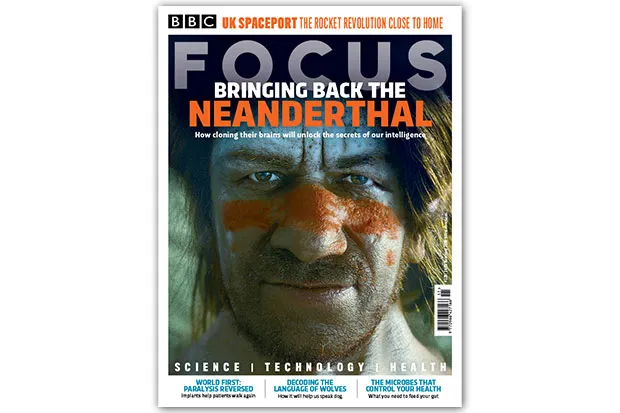Issue #328 of BBC Focus on sale 17 October 2018
We know more about the Neanderthal than we do any other human. They’re our closest ancient relative after all. Their bones, found across what’s now Asia and Europe, whisper that they were fearless hunters who cared for their sick and buried their dead. And the caves in which they were found tell us that they made tools, jewellery and perhaps even art.
Thus far, the fossil record suggests that they lived here for some 350,000 years, until we showed up. More accurately, the Neanderthal story seems to end at about the same time that humans who looked like us left Africa for good and began to spread out across the globe.
Some theories say we wiped our cousins out, others suggest that since Neanderthal DNA resides in most humans today, our ancestors made love, not war, until there were no Neanderthals left. The most likely explanation is that, while we probably fought and fornicated with the Neanderthals, we also out-competed them. At the time of their extinction there were extreme climate fluctuations, and the ecosystems that the Neanderthals depended on rapidly changed.
The modern human was better equipped to survive. But why? What made us special? Since we can’t go back in time to observe the Neanderthals, scientists are capitalising on a new technique – the creation of mini-brains – to compare our minds with those of our extinct cousins. In the latest issue of BBC Focus, we find out what gave us the edge.

Bringing back the Neanderthal
How putting our ancestors’ brains in robots will reveal the origins of our intelligence.
Decoding the language of wolves
Learning to ‘speak’ canine by studying the facial expressions of wolves.
The microbes that control your health
Discover how the bacteria in your gut can influence your physical and mental health.
Stop election hacking
Lava lamps, quantum keys and the other methods of protecting the integrity of the polls.
British spaceport
Private rockets could be blasting into orbit from the British Isles within three years.
Q&A
- Why are bald heads so shiny?
- What happens in my body when i fart?
- Does a hot summer trigger an early autumn?
Plus
Eye opener:Mind-blowing images from Earth and beyond.
Discoveries:This month’s biggest science news, including the world’s first paralysis reversal.
Aleks Krotoski:How ‘woke horror’ opens our minds.
Michael Mosley: Improve your mood this winter.
Innovations:The latest technology and gadget news. PLUS: Over-the-ear headphones on test.
Out there: Science stuff to enjoy this month: books, exhibitions, days out and more.
Crossword: Solve the clues and fill the grid.
My life scientific:Dr Cat Hobaiter reveals what daily life is like when you’re trying to decipher the behaviour of wild chimps in Uganda.
Don’t forget thatBBC Focusis also available on all major digital platforms. We have versions forAndroid,Kindle Fire and Kindle e-reader, as well as aniOS appfor the iPad and iPhone.
Subscribe to BBC Focus Magazine
Follow Science Focus onTwitter,Facebook, Instagramand Flipboard